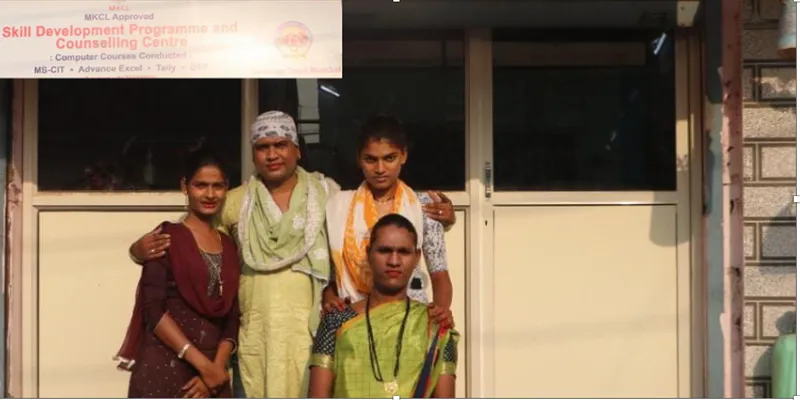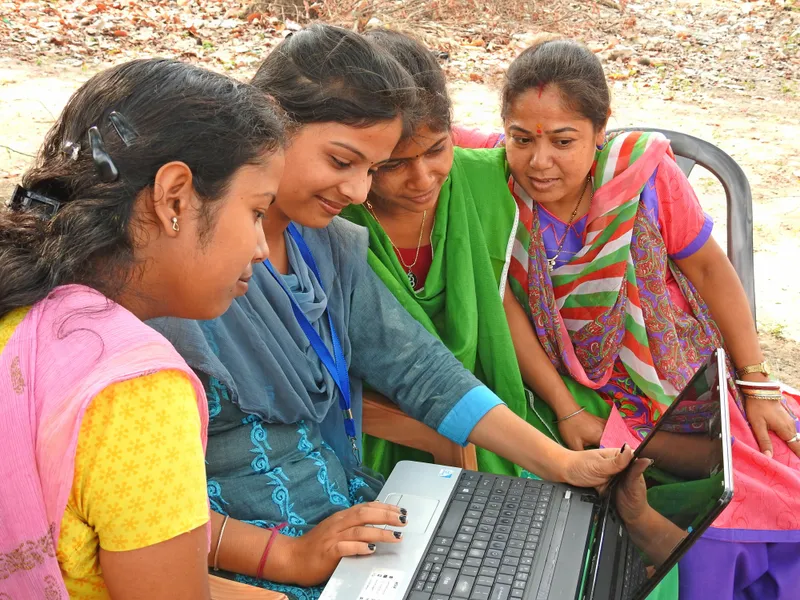From skilling poverty stricken women and girls to helping over 70k farmers: Top SocialStories this week
This week, SocialStory looked into the organisations that are empowering farmers and underprivileged women and children through skilling.
In the ongoing pride month, SocialStory started a new series to profile different queer individuals who have championed for the queer rights and freedom.
This week, we interviewed Dr Yoga Sreelesh Nambiar who has spent the last 20 years advocating for the rights and dignity of the transgender community in India.
Read Yoga's and other stories in this week's SocialStory.
[Queer Changemakers] 'It will take another 25-30 years to get proper rights and mainstream visibility for the transgender community'
Dr Yoga Sreelesh Nambiar speaks about the elderly, migration, and her dream to build a second home for the transgender community.

Dr Yoga was born and raised in a middle class family. Despite having her parents' unwavering support, she faced a lot of abuse and discrimination from society and even her own relatives. Several of them told her parents not to send her to school or educate her. Her parents refused to listen and she became the first transgender person in India to be awarded a PhD in mental health.
An award winner for her contribution to the arts, today, she is a leading activist for the transgender community, sex workers, and migrant workers.
How Anudip Foundation is helping poverty-stricken women, girls, achieve economic independence
Reports reveal of India’s staggering population of 1.3 billion, over 800 million are in the ‘working age group’. But about 98 percent of this number is in the informal labour force without consistent wages, security, and access to basic amenities.
Launched in 2007, Anudip Foundation is an NGO working to transform the lives of people living in the depths of poverty. Its interventions focus on working with Indian youth from economically and socially weaker sections of the society—including tribal, migrants, political refugees, traffic victims, persons with disability, and women—across 18 Indian states and 57 districts.

Anudip foundation guides underprivileged women and girls to secure a dignified existence through skill training
“Our effort is to create lifelong learners, ready to access economic opportunities in an increasingly digital world, thus securing for our students a life of dignity. Our theory of change is that economic independence and a mindset of learning creates social consciousness and empathetic individuals who bring change in not just their families, but serve as role models in their communities and for the next generations,” says Monisha Banerjee, CEO of Anudip Foundation.
How agritech platform FAARMS impacted the lives of 70,000 farmers in one year
Sudesh Devi is a dairy farmer from Jind in Haryana. For over 20 years, she has been one of the key breadwinners in her family and many in her village look up to her for advice on how to tend to their livestock. Like many dairy farmers across the country, Sudesh Devi also fed her animals traditional fodder derived from bran, millets, and pulses like khal, chokar, channa, and chunni.

Last year, she was able to access Golden Channa Churi, a better quality feed, courtesy digital agritech platform . The change in feed resulted in a two-litre increase in milk production per animal, which earned Sudesh Devi and her family an additional Rs 20,000 a year.
“This is a significant savings for small-holding farmers and can make a difference to their standard of living,” says Alok Duggal, Co-founder and COO of FAARMS, which delivers the complete range of products and services such as seeds, fertilisers, pesticides, animal feed right to the farmers’ doorsteps.
[Monday Motivation] How I went from a farm in UP to studying at a top US university
I was born in a small village in Uttar Pradesh. My father is a farmer, and my mother is a homemaker. We were not well to do and our annual income was less than Rs 1 lakh. My family struggled to make ends meet and ensure that I went to school.
When I was 12-years-old, I was told about an opportunity to study free at VidyaGyan, a leadership academy founded by the that gives children from rural, underprivileged families an opportunity to better their lives. I wrote and cleared the entrance exam and secured admission. However, the news was bittersweet because my education would now be free, but that meant I had to leave home, my family, and my friends.

When I told my parents, they insisted that I go as this was a wonderful opportunity. My parents have always talked to me about the importance of having an education and it was this passion that motivated me to join VidyaGyan.
I stayed at the academy till I graduated high school with top marks. My education at the academy was free throughout my stay there, and the teachers always supported us. It was this that convinced me that I could do anything I set my mind to.
After finishing high school, I decided to write the Scholastic Aptitude Test (SAT), which is a must for anyone wanting to do an undergraduate degree in the US. I cleared the exam with a high score and secured a scholarship to study at Purdue University in Indiana.
Edited by Megha Reddy






